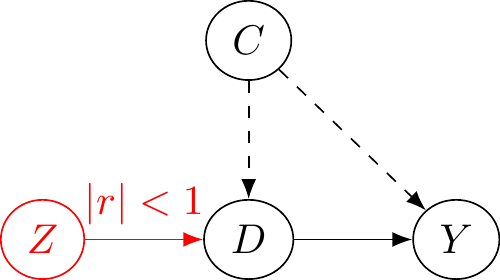7 Natural Experiments & Instrument Variables (IV)
Randomized controlled trials (RCTs) are the gold standard for estimating causal effects, but they are not always feasible or ethical. For example, we cannot conduct an RCT to study the effects of a terror attack on anti-immigrant attitudes, because it would be unethical to randomly expose people to a terror attack. In such cases, we can use natural experiments, which are situations in which people are randomly exposed to a treatment or control condition, without the intervention of a researcher. However, natural experiments are not always perfect, and they can be difficult to find.
Even when RCTs are feasible, respondents may not always comply with the treatment that they are assigned. For example, in the Sherman and Berk (1984) study of the effects of arrest on domestic violence, many police officers ignored the researchers’ instructions and arrested the suspects anyway. In such cases, we can use instrumental variables (IV) regression to estimate the causal effect of the treatment, even if people are not randomly assigned to treatment groups. IV regression is a powerful statistical method, but it can be difficult to implement and interpret. It is important to carefully consider the assumptions of both natural experiments and IV regression before using them to estimate causal effects.

Reading: Angrist and Pischke (2014, Ch. 3 Instrument Variables, Pages 98-123).
Optional (skim) reading: Legewie (2013), Sherman and Berk (1984), and Chetty, Hendren, and Katz (2016).